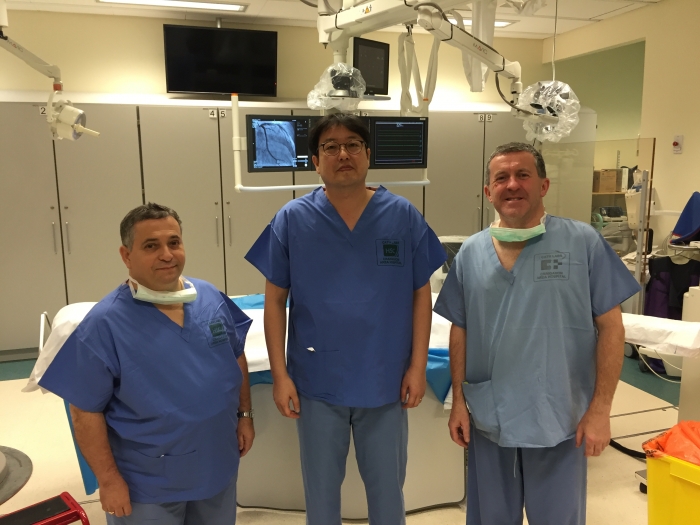Individual Post
The Southern Health and Social Care Trust has participated in an international project which could have major benefits on patient care and save healthcare costs worldwide.
Dr David McEneaney, Southern Trust Consultant Cardiologist, collaborated with Principal Investigators, Professor Omar Escalona from the Ulster University and Professor Yoon-Seok Yang, from Chonbuk National University in South Korea – to help create wireless charging technology for medical implants.
Currently, medical implants, such as pacemakers and insulin pumps, require surgery or other invasive procedures to either recharge the batteries or replace the entire device before the batteries expire.
The Southern Trust has been collaborating with Chonbuk National University and Ulster University’s team of biomedical engineers to create highly innovative wireless energy supply technologies, which will mean that patients can simply recharge an implant through the skin via a RF power link. This will dramatically reduce surgical risk to patients and associated healthcare costs.
An initial £20,000 has been granted by the UK Medical Research Council and the Korea Health Industry Development Institute, in support of this joint research activity
Dr David McEneaney shared his thoughts on the project:
“This research will help to make significant advancements in the field of wireless power supply for the global medical device industry.
“Wearable and implantable medical devices address a wide variety of healthcare needs and range from insulin pumps and pacemaker to cochlear implants and artificial heart pumps, all of which depend on a continuous and sustainable energy supply.
“The technology will eliminate the need for a driveline through the skin or use of conventional batteries that require changing when depleted. This means that patients are less likely to contract infection at the skin site of the driveline and will not require hospitalisation for battery replacement.
“This technology has the potential to have major positive impacts on patient care and healthcare costs around the world. It aims to empower patients to take control of their own treatment and improve their quality of life."



